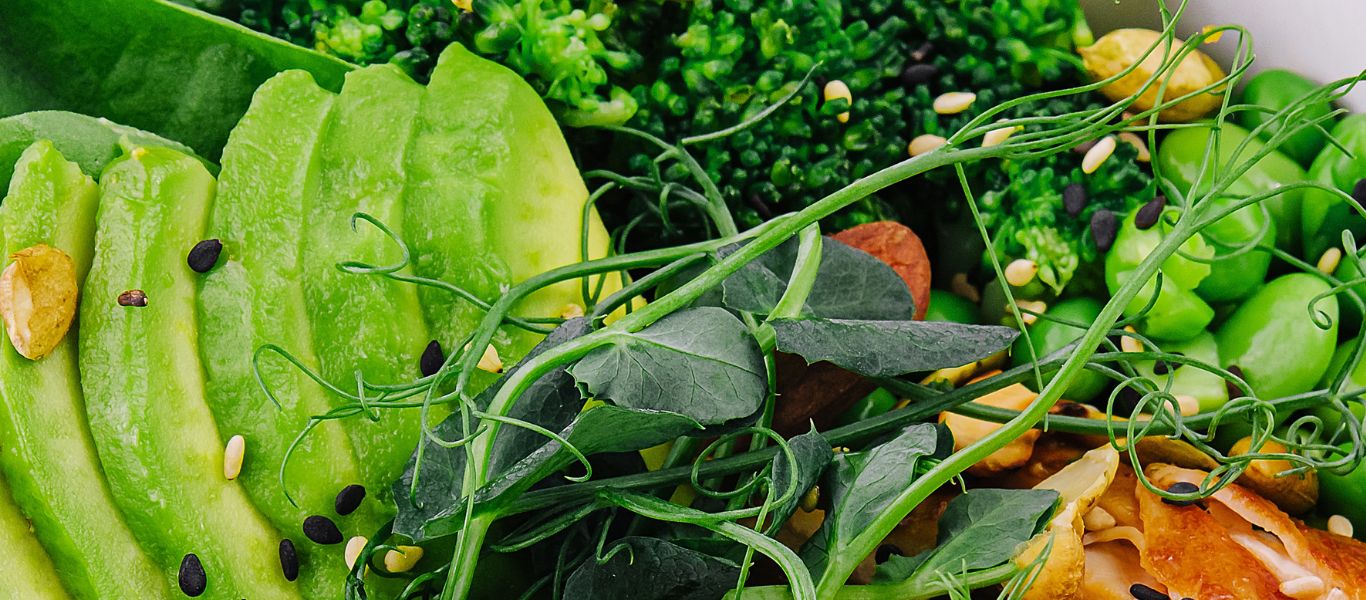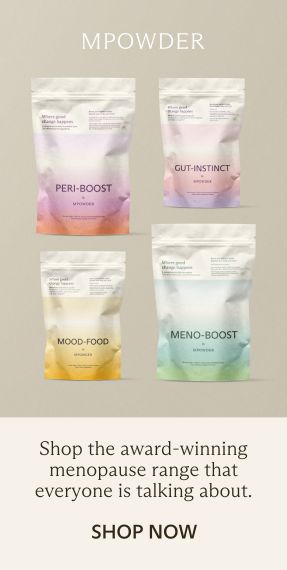Plant-based eating can absolutely support hormone balance, energy, and long-term health. The key is in planning. And prioritising a whole-food-first approach.
In this guide, we explore what the best plant based diet for menopause looks like — what to include, what to be mindful of, and how to ensure you're not just surviving, but thriving.
Why a plant based diet for menopause can work
A plant-based or vegan diet can offer many advantages in midlife, including:
- Reduced inflammation
- Improved gut health and digestion
- Lower risk of heart disease and type 2 diabetes
- Increased fibre intake, which helps oestrogen clearance and satiety
- Access to powerful phytoestrogens — plant compounds that may mimic oestrogen in the body1
But plant-first also means paying attention to key nutrients — particularly those that may become harder to absorb or synthesise with age.
Key nutrients to focus on
If you are following a plant based diet for menopause it is important to pay close attention to:
Calcium and vitamin D – essential for bone health, nerve signalling, and hormone function
-
Whole food sources:
— Calcium: tahini, almonds, tofu set with calcium, leafy greens like kale and bok choy
— Vitamin D: Sunlight (nature’s best source!) and mushrooms exposed to UV light
Note: Vitamin D3 from algae is a great vegan supplement form too.
Iron – needed for energy, blood oxygenation and cognitive health
-
Whole food sources:
— Lentils, chickpeas, black beans, tofu, quinoa, pumpkin seeds, dried apricots
Tip: Pair with vitamin C-rich foods (e.g. peppers, oranges) to improve absorption
Zinc and magnesium – support immunity, hormonal health, sleep, and energy metabolism
-
Whole food sources:
— Zinc: Pumpkin seeds, hemp seeds, cashews, oats, lentils
Magnesium: Dark leafy greens, bananas, almonds, black beans, whole grains
Vitamin B12 and Omega-3s – crucial for brain function and cell repair, but often lacking in a vegan diet
-
Whole food sources:
— B12: Only found in fortified foods (e.g. nutritional yeast, plant milks, cereals) or supplementsOmega-3s: Chia seeds, flaxseeds, hemp seeds, walnuts, and algae oil supplements
Protein – preserves muscle mass, supports hormones, and aids collagen production
-
Whole food sources:
— Lentils, tofu, tempeh, seitan, edamame, quinoa, chickpeas, nuts and seeds
Phytoestrogens – plant compounds that may mimic oestrogen and help modulate hormonal symptoms like hot flushes and night sweats
-
Whole food sources:
— Soy (tofu, tempeh, soy milk), flaxseeds, chickpeas, sesame seeds, oats, and alfalfa sprouts
Whole foods first. Supplements second
At MPOWDER, we view supplementation as just that: supplementing a good diet. Our blends are designed to fill nutritional gaps and amplify what’s already on your plate — not replace it.
If you're eating a plant based diet for menopause, our formulations are vegan-friendly and rich in:
-
PERI-BOOST – With plant-based protein, calcium citrate, magnesium malate, zinc, B-vitamins and vitamin D3 from algae
-
MENO-BOOST – Includes red clover, adaptogens, omega-rich Ahiflower® oil, and antioxidants for mid-to-late menopause support
- MOOD-FOOD – Designed to stabilise mood, featuring turmeric, KSM-66® Ashwagandha and B-vitamin support
Explore the full range to build your base:
MPOWDER PRODUCTS
Final thought
A plant based diet for menopause can be nutrient-rich and fully supportive - especially when paired with a curiosity for what your body needs, now. Prioritise variety. Don’t be afraid to ask for support. And remember: thriving in midlife is about more than rules. It’s about nourishment — in every sense of the word.
Footnotes
Messina, M. (2014). Soy foods, isoflavones, and the health of postmenopausal women. American Journal of Clinical Nutrition, 100(SUPPL. 1), 423S–430S. https://doi.org/10.3945/ajcn.113.071464
Share Twitter Facebook Pinterest

